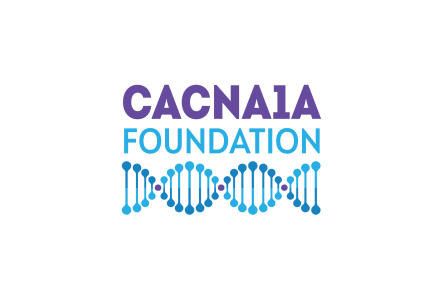CACNA1A Foundation
Cycle 2
CACNA1A is a very large gene on the 19th chromosome. Variations in this gene can cause neurodegenerative disease and a variety of neurological symptoms.
Last updated 04/30/2025
Clinical
Disease Class
Genetic diseases
Neurological diseases
Body Systems
Nervous / Sensory
Organs
Brain
Known Genetic Link
Yes, one or more genes directly cause the condition
contributory_genes
None specified / unknown
Type of Inheritance
Autosomal dominant
De novo
Newborn Screening
No
Disease Mechanism(s)
Abnormal channel conductance
Abnormal channel regulation
Altered channel kinetics
Pathogenic mutation
Protein misfolding
Age of Onset
Early childhood (age 1+-5)
Infancy (age 0-1)
Average Age at Diagnosis
Early childhood (age 1+-5)
Middle childhood (6-11)
Life Expectancy
Elderly (age 65+)
Affected Sex(es)
Female
Male
National Prevalence
Unknown
Global Prevalence
Unknown
National Incidence
Less than 10
Global Incidence
Less than 10
Symptoms / Phenotypes
anxiety
attention disorders / ADHD
autism
autistic behavior
cerebellar atrophy
cerebral edema
cognitive impairment / confusion / brain fog
coma
depression
developmental delay
headaches / migraines
hypotonia
intellectual disability
movement disorders / ataxia / tremor
nystagmus
obsessive compulsive disorder (OCD)
seizures / epilepsy
stroke
Biomarkers
None
Existing Therapies
FDA-Approved for Symptom Relief
· acetyl-dl-leucine, verapamil, topiramate, diamox (acetazolamide)
Off-Label Drug Use
Other
· AEDs such as Keppra, lamotrigine; also rescue drugs such as ketamine, steroids, acetazolamide for hemiplegic migraines
Organizational & Research
Cell Lines
Fibroblasts
iPSCs
LCLs
Cell Lines, Institution
COMBINEDBrain
Jackson Laboratories (JAX)
StemBancc
Cell Lines, Involvement
Consulted
Designed
Funded
Own
Cell Lines, share
Some of our cell lines are freely available
Disease Model
C. elegans
Drosophila/fly
Mouse
Zebrafish
Disease Model, Involvement
Consulted
Designed
Funded
Disease Model, share
Some of our disease models are freely available
Clinical Trial Role
Not involved
Biobank, Institution
COMBINEDBrain
Van Andel Institute
Biobank, Involvement
Designed
Funded
Center of Excellence, Institution
None
Registry
No, we do not have a registry, but we plan to create one
Natural History Study
Yes, we have a natural history study that we created
Data Collected, Natural History Study
Clinical endpoints (outcomes)
Electronic health records/electronic medical records
Genetic data
Imaging data
Medication usage
Patient-reported outcomes
Prospective data
Retrospective data
Platform, Natural History Study
Invitae Patient Insights Network
RARE-X
REDCap
FDA Patient Listening Session
We have taken formal steps to schedule a meeting
FDA Patient-Focused Drug Development (PFDD) Program
No
ICD Codes
We are working on obtaining an ICD-10 code
Diagnostic Guidelines
Yes, we have guidance available on our website
Science Advisory Board Policies
Yes, willing to share SAB policies
Research Network Policies
Does not have a CRN
Research Roadmap
Yes we have a Research Roadmap, and will share policies
International Chapters
None
International Partners
None
